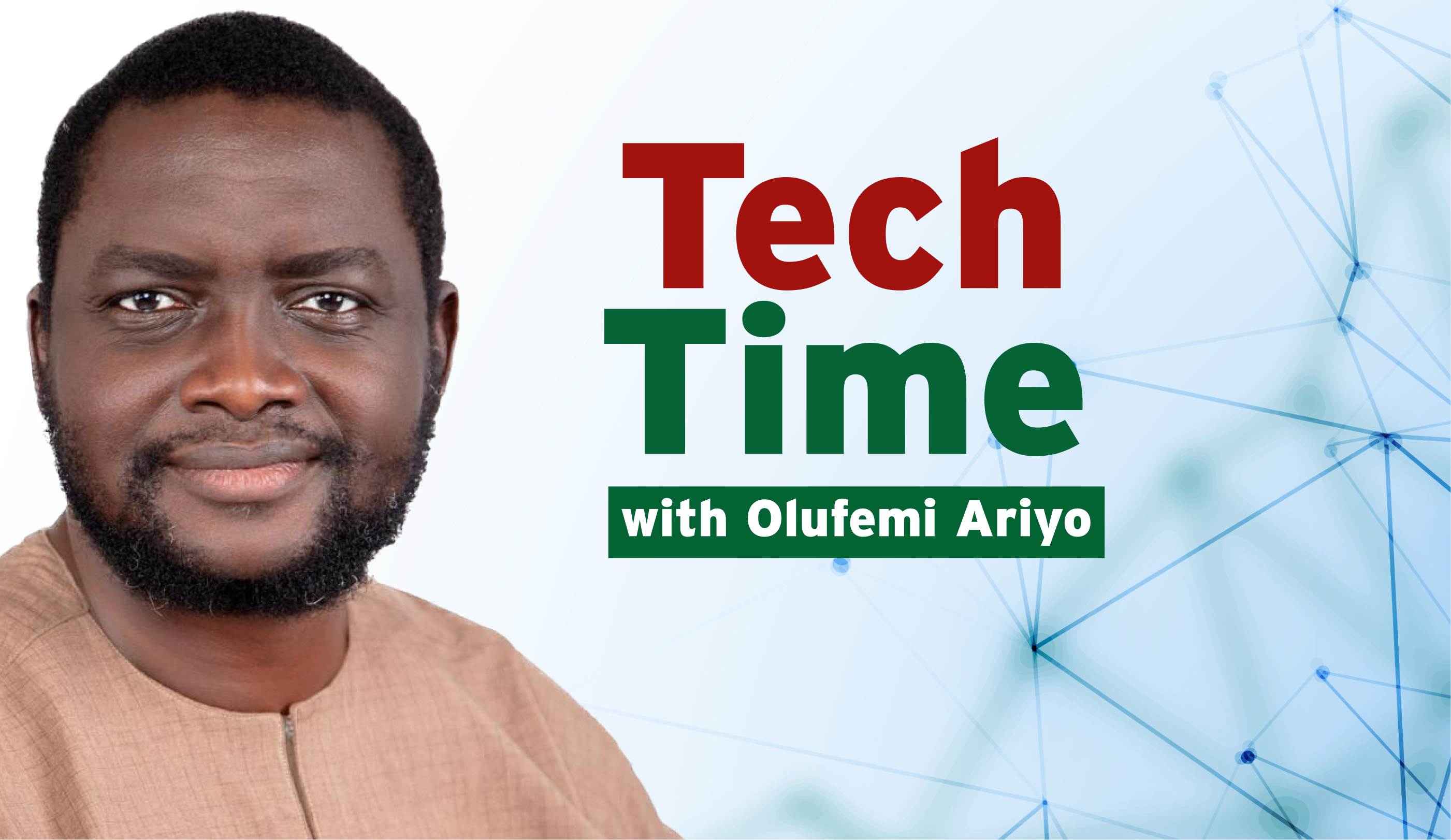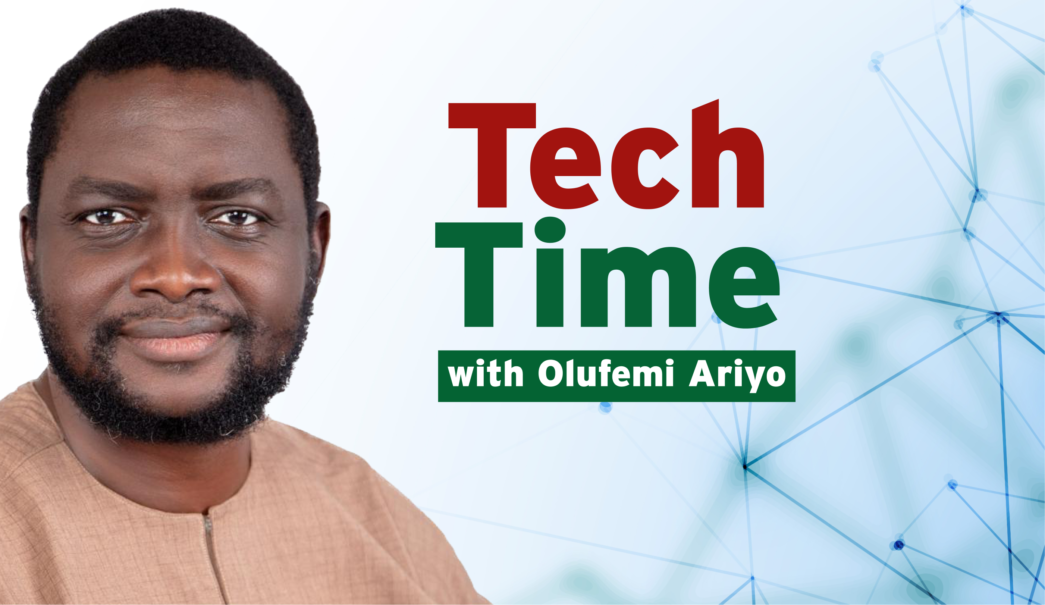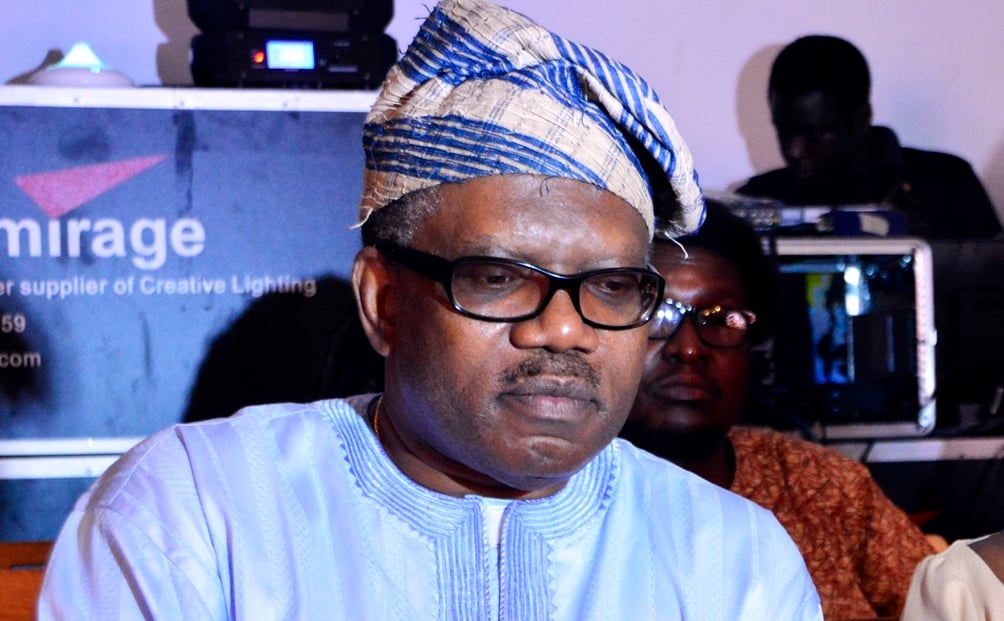A decade from today, the world of work will not just evolve but completely transformed. The rise of generative-AI tools, automation platforms, and radically shifting labour-market dynamics mean that job roles, skills, value-chains and global competition are all being re-defined. For Africa (its youth, its professionals, its human-capital assets), this is both a tremendous opportunity and a formidable challenge.
This piece is addressed to Africa’s youth and professionals: the ambition-driven graduates, the early-career talent, the mid-career change-makers—those who must navigate this post-AI world. My aim is threefold: To illustrate the scale and nature of the change—through statistics, quotes from eminent persons, and real examples; engage psychologically, how you need to think differently, act differently, and build resilience not simply adapt; and To share steps and set your future expectations rightly—how to position yourself in other strong nations’ orbit, how to leverage Africa’s unique assets, how to make global competitiveness not just aspirational but deliverable. So if you are reading this in Nairobi, Lagos, Johannesburg, Accra or elsewhere on the continent, be prepared to ask: What is my next five-year move? How will I build a human-capital advantage that the world cannot outsource away? Because in the age of intelligent automation, Africa’s talent must not simply ride the wave but lead on its terms.
1. The Global Shift: Why “Now” Matters
Technology as Tide
Advertisement
As Andrew Ng famously said, “AI is the new electricity.” He meant that just as electricity rewrote the rules of industry, AI will now rewrite the rules of knowledge, service, creative, and even management work. To add to this, Jeff Bezos echoed, “The pace of progress in artificial intelligence is incredibly fast.”
Look at the numbers: For example, in Africa, research suggests that up to 40% of tasks in the tech-outsourcing sector may be affected by AI by 2030. In South Africa alone, one estimate is that 35% of all jobs are at risk of total automation—i.e., the machine can perform 75% of the activities of that job. Meanwhile, on the positive side, there is significant productivity potential as AI will also power the creation of newer kinds of jobs especially for creative minds. In South Africa, a report by McKinsey & Company predicted that accelerated digital adoption could add more than a percentage point to real GDP growth through the next decade.
The Demographic Wave
Advertisement
Africa is not peripheral to this change but central. The continent will be home to almost half of the world’s youth population by turn of the century. One piece of research points out: “By 2030, African youth are expected to make up 42% of the world’s youth population.” That means the potential global workforce of the future is largely African. If those young people are prepared with relevant skills, Africa can leapfrog many older economies. If not, there is a risk of mass unemployment, under-employed talent, wasted human capital.
Africa’s Unique Position—and Risk
Here’s the duality: Africa has both enormous opportunity and significant risk. On the opportunity side, less legacy infrastructure, the ability to “leap” into new models (digital-first rather than industrial-first). On the risk side, many African economies still suffer from low digital literacy, a shortage of high-skilled workers, and infrastructure/education gaps. For instance — only about 6% of employment in Sub-Saharan Africa is in high-skilled work versus a global average of 24%.
In his words, Lacina Koné (CEO of Smart Africa) warns that, “AI will not replace jobs, rather people who adapt to AI will replace people who do not. By 2050, 40% of the world workforce will be in Africa. But we will never reach that point unless we reskill ourselves on emerging technology.” This is the heart of our theme: digital resilience. Not merely surviving, but thriving—leveraging what makes Africa unique.
Advertisement
2. What “Competing Globally” Means for African Talent
Global Benchmarks & The New Reality
In strong nations (think India’s AI Mission 2025, EU’s AI Pact, U.S. AI workforce strategy), the race is already on for AI-talent, AI-tool adoption, generative-AI productivity platforms, co-working with machines. The slogan is not “humans vs machines” but “humans + machines.” For example, an academic paper highlighted that AI increases demand for human skills (complementary skills) more than it reduces them (substitution) — the complement effect is up to 50% larger than substitution.
So the modern benchmark for competitiveness looks like this:
Advertisement
- Digital literacy & fluency (not just basic IT)
- Ability to work alongside, with, or through AI-tools (generative, assisted, co-created)
- Creativity, critical thinking, emotional intelligence, cross-domain perspective
- Adaptability: moving between roles, re-learning, pivoting
- Global mindset: able to compete in remote/virtual/hybrid/AI-augmented settings
What African Talent Brings to the Table
As Strive Masiyiwa puts it, “The next billion jobs in Africa will come not from governments or big corporations, but from entrepreneurs who use technology to solve real problems.” That is the heartbeat of Africa’s global competitiveness: creating, not just consuming. Here are some distinct advantages:
Advertisement
- Youthful population, often multilingual, culturally nimble
- A growing remote-ready infrastructure of tech hubs in Nairobi, Lagos, Cape Town, Accra, Kigali
- Opportunity for “leapfrog” – bypassing older industrial models, going digital-first
- Entrepreneurial energy: many young Africans want to start businesses; many new startups are digital-first. For example: “about 75% of African youth aim to start their own businesses within five years, with nearly 80% of new startups being digital-first.”
Where the Competitive Gap Lies
However, the competitive gap is real. Some of the issues:
Advertisement
- Skills mismatch: Many young Africans lack digital literacy. Less than 5% of Sudanese youth can complete basic computer tasks; in Morocco, less than 45% have such capability.
- AI-skills shortage: In major African economies, organisations expect large AI-skills gaps. For instance, in South Africa 53% of organisations expect an AI-skills shortage; Nigeria 50%; Kenya 43%.
- Infrastructure and connectivity: As of 2023, only approximately 37% of Africans have internet access, compared to about 67% global average.
- Automation risk: Without action, large cohorts could be displaced or left behind.
Therefore, to be globally competitive, African talent must do more than “catch up” and assume a different orientation—leveraging strengths, closing gaps, embracing the new reality.
3. Psychological Shift: Mindset & Resilience
Advertisement
From “Job-Seeker” to “Value-Creator”
In the past, many graduates focused on entering employment, securing a job, climbing the corporate ladder. In the post-AI world, the metaphor shifts: you must become a value-creator in ecosystems that include AI-tools, automation, remote/global competition, and continuous learning. This means that your identity must shift—from simply “finding a job” to “what value can I bring, what problem can I solve, what role can I play that machines cannot replicate (or that machines augment)?”
Embracing Uncertainty, Continuous Learning and Pivoting
Generative-AI and automation mean the roles, tasks, skills of today may not exist tomorrow—or will exist in radically changed form. A recent article in South Africa warns: “over 45% of existing jobs at high risk of displacement by artificial intelligence and automation.”
So psychologically, you must build resilience:
- Accept change as constant, not exception
- Build capacity to intentionally re-skill, not wait for up-skilling to happen to you
- Cultivate curiosity, experimentation, adaptability
- Embrace “learning how to learn” rather than just “learning what”
- Build networks, both human and digital, so you are plugged into evolving ecosystems
Global vs Local: The Belief in Connection
Often, African professionals see themselves added on to global production. The new mindset must instead view themselves as global participants: remote-ready, generative-AI-aware, able to plug into global teams, deliver globally competitive results, innovate locally with global relevance. Remember the quote often attributed: “AI won’t replace you, but people who are using AI will replace you.” While the quote’s authenticity is debated, its sentiment is instructive. If you wait for the wave to pass you, you will drown. Instead, catch the wave.
Identity and Purpose in the Age of AI
Beyond jobs, there is a deeper psychological dimension: work is often tied to identity, purpose, social connection. Whereas, in today’s reality, where automation is pervasive, one must ask, How do I anchor purpose beyond mere employment? How do I seek roles that matter, that create impact, that connect to values, not just pay-cheques? By anchoring in purpose, you not only survive disruption but thrive in it.
4. How-To: Building Africa’s Human Capital Advantage
Here we move into practical steps—how to build your path as youth or professional in Africa preparing for the post-AI future.
Map the Landscape: Understand What’s Coming
- Read up on global trends: automation, generative AI, agentic AI, remote work, global talent marketplaces.
- For Africa specifically: Understand sectors where Africa has advantage (outsourcing, digital services, remote work, fintech, creative/entertainment, agritech). For example, research shows Africa’s tech-outsourcing/BPO sector could unlock USD $35 billion by 2028—but only if upskilled and AI-ready.
- Identify what tasks in your current role are likely to be automated or augmented—and which tasks are likely to remain human-centric (creativity, judgment, cross-domain insight, leadership, emotional intelligence).
- Benchmark: What are advanced nations doing? e.g., in South Africa, digital adoption could triple productivity growth.
Audit Yourself: Skills, Strengths & Gaps
- List your current skills: technical (coding, data analytics, cloud, AI-tool use), and soft skills (communication, collaboration, leadership, cross-cultural, problem solving).
- Identify gaps: For instance, can you use generative-AI tools? Do you understand AI workflows? Are you comfortable in remote/global teams?
- Map roles you aspire to: For example, remote data analyst, AI-tool specialist, creative technologist, digital product manager, remote-service provider.
- Set goals: e.g., in 6 months I will complete a certification in generative-AI workflows; in 12 months I will contribute to remote project with global team; in 18 months I will co-lead a digital product.
Upskill & Reskill Strategically
- Prioritise foundational digital skills: data literacy, cloud basics, programming (Python, R), AI-tool usage, generative-AI prompt engineering. These are becoming table-stakes. For example, in Africa 85% of organisations cited AI-development skills as a priority; 83% cited generative-AI skills.
- Learn to work with AI rather than just being automated by it. The academic (≠ – not equal to) “AI replaces human” narrative; in fact studies show demand for human-complementary skills increases in an AI world.
- Develop remote/virtual work readiness: proficiency in digital collaboration tools, asynchronous communication, cultural agility. Many African employers now value “remote-ready” skills: data analysis, project management, customer success.
- Build domain plus adjacent-tech skills: Being “just a coder” may become commoditised; combining domain expertise (e.g., agritech, fintech, health-tech) with digital/AI skills gives you edge.
- Leverage free or low-cost learning pathways: For example, Reskilling Revolution Africa (RRA) — a collaboration between IBM SkillsBuild and the African Union – offering thousands of free courses in AI and advanced tech.
- Build a portfolio of digital/AI-augmented work—for example contributions to open source, freelance projects, hackathons, AI-challenge platforms. In Kenya, a report found that among 8,000 youth using the data-science/AI challenge platform Zindi, 19% had career changes after engagement; over 80% of fully-profiled users progressed.
Build Your Network and Exposure
- Connect with global talent marketplaces: remote work platforms, global freelancing networks, open-source AI communities.
- Engage in cross-border projects: even a small project with a global team gives you credibility, exposure, and experience.
- Attend digital/tech hubs, join AI meet-ups, participate in hackathons—especially those that emphasise generative-AI or automation. Many African cities now have thriving hubs (e.g., Nairobi, Lagos, Cape Town, Kigali).
- Document your work: build an online presence (GitHub, personal website, LinkedIn), share your AI/digital projects, contributions, and results. This is your digital CV for the global era.
- Seek mentorship: both locally and globally. Mentors can help you navigate transitions, set realistic goals, expose you to opportunities you’d otherwise not see.
Position Yourself in Global Value-Chains
- Understand the global play-book: If strong nations are positioning for the new reality, you must see where Africa fits in and where it can lead. For example, many companies in the U.S./China/EU will outsource digital services and remote work; Africa can capture more value if it moves up-the-value chain (not just delivering BPO tasks but delivering AI-augmented services, creative digital products, domain-specific solutions).
- Think vertically: From execution → strategy → creative/AI-augmented leadership. The more you move up the value chain, the more resilient your role.
- Think horizontally: Across borders, across domains. If you can operate globally from Africa, with competitive cost and high skill, you become part of the global talent pool, not just local.
- Branding matters: Being based in Africa is no barrier; it can become an advantage if you brand yourself as “African-based global digital professional”—leveraging time zones, language, cultural adaptability, and cost efficiencies.
Design Your Five-Year Horizon & Milestones
Here is a sample structure you might adopt for your personal five-year plan:
Year 1
- Complete foundational certification: e.g., AI fundamentals, data science, agentic-AI, generative-AI prompt engineering.
- Join/complete at least one global remote project (could be freelance) through your LinkedIn.
- Build your digital portfolio (GitHub, website, LinkedIn updates).
Year 2
- Deepen domain expertise (choose a domain: fintech, agritech, ed-tech, health-tech, creative tech).
- Build a project that shows you used an AI tool to deliver value (e.g., automate a workflow, build a chatbot, derive insight from data).
- Expand network: attend at least one international digital conference (virtually or physically).
Year 3
- Assume a role or lead a project that involves AI/automation usage (e.g., remote team, or internal change within African firm).
- Mentor others, share your learning, build your personal brand.
- Explore entrepreneurship or side-project: digital product, AI-augmented service.
Year 4
- Move higher in value chain: consult, deliver strategy, build AI-augmented business model.
- Possibly relocate (virtually or physically) into a global role or into Africa-led global service delivery.
- Build resilience: transition into roles less automatable (creative, leadership, strategy).
Year 5
- Position yourself as thought-leader in your domain, combining African perspective + global competence.
- Possibly start your own venture/product.
- Continue lifelong learning: Master-level AI topics, ethics, leadership in AI-ecosystems.
- Reflect: Are you world-class in your niche? Are you competing not just locally but globally?
5. Setting Future Expectations: Where Africa Fits, What to Aim For
Strong Nations’ Strategies: What to Learn
- In the United States, China, Europe, and India, AI is being integrated broadly: in knowledge work, creative work, service work, manufacturing, logistics. For example, CEOs like Jeff Bezos and Andrew Ng stress AI’s pace and foundational nature.
- Governments and companies are investing heavily in up-skilling, reskilling, AI infrastructure, and talent retention.
- The model is shifting towards augmented work—humans working alongside intelligent machines—rather than simple automation.
- Global talent competition means that geography matters less; remote/global work, borderless digital talent marketplaces mean Africa is in the game.
The world’s perception of Africa is changing—from a continent of resource extraction to one of talent export. As Iyinoluwa Aboyeji reminds us, “Africa’s greatest export to the world will not be raw materials—it will be human talent.” This insight captures the essence of our decade: human capital, not minerals, will define Africa’s global value.
Africa’s Potential Role by 2030
By 2030, if current trends are harnessed:
- Africa could supply a large chunk of global remote digital services—from Africa into the world—driven by AI-enabled talent.
- Africa could become a hub for generative-AI enabled creative production: digital media, design, content, multilingual AI-services.
- Africa’s youth entrepreneurial ecosystem could deliver globally-relevant products, jump-starting from digital-first models.
- In sectors unique to Africa (e.g., agriculture, natural-resources, climate tech, health in emerging environments), African talent with AI/digital skills could lead domain-specific solutions (for Africa and the world).
- In outsourcing/BPO, Africa could pivot from “cheap labour” to “smart labour”—the kind of labour that works with AI, designs automation, creates value rather than merely performs tasks. For example, research shows Africa’s BPO sector could unlock USD $35 billion by 2028—but only if AI-ready.
Realistic Expectations for You
- You will not simply show up and have a job for 40 years. The notion of job-lifetime is fading. Instead, expect multiple careers, reskilling phases, role-shifts.
- You should aim to be among the top decile in your niche (global standard), not just average locally. Because global competition is real.
- You must aim to be irreplaceable (or extremely hard to replace) by machines: this means tasks where human judgement, creativity, context, cultural or domain insight matter.
- You should expect to invest in yourself—ongoing learning will not be optional, it will be essential.
- You should plan for, and perhaps participate in, entrepreneurship—not just employment. Because the borderless digital economy opens more pathways.
- You should expect to collaborate across borders, time-zones, cultures—as the talent pool is global, and your work may be distributed.
- You should accept that infrastructure, connectivity, policy will remain constraints in some African contexts—but that is changing, and you must strategically navigate it.
Risks to Watch
- Complacency: if you assume only traditional skills suffice, you risk being out-paced by peers who embrace AI-augmented workflows.
- Skills-gap: if you stay in roles where tasks are automatable, you may end up with fewer opportunities. For example, in South Africa, major number of youth unemployed, with over 45% jobs at high risk of displacement.
- Digital divide: infrastructure, connectivity, digital literacy remain variable across Africa. Example: internet penetration about 37% in Africa compared to approx. 67% global.
- Gender/inclusion gap: Studies show women’s tasks in outsourcing are more vulnerable to automation (10% higher risk) unless targeted up-skilling.
- Value-chain positioning: If Africa remains only executing low-value tasks, the profit, innovation and growth may accrue elsewhere, leaving talent undervalued.
6. Case Studies and Specific Examples
Kenya and the Zindi Story
In Kenya, a report by Zindi (with Dalberg Data Insights and others) found that out of 8,000+ Kenyan youth engaged in AI-challenge platforms, nearly 1 in 5 (approx. 19 %) secured a career change after joining. Over 80 % of fully profiled users progressed.
This shows three things:
- Engaging in global AI-challenge platforms creates tangible career mobility.
- Digital self-profile (completing your profile, showing your work) matters hugely—80% vs 3% progression difference.
- African youth are already engaging with AI-platforms; the pathway is visible.
South Africa: Automation Risk & Opportunity
In South Africa, a report estimated that 35 % of all jobs are at risk of automation (75 % of activities in those jobs can be done by machines). Another McKinsey-report for South Africa predicted net gain of 1.2 million jobs by 2030 if technology adoption accelerates—but these jobs will require higher-education levels. The takeaway: Technology can create jobs if matched with skill supply. Without skill development, risk of unemployment rises. For African talent: learn now.
Africa-Wide Outsourcing Sector
Research by the Mastercard Foundation (with Caribou & Genesis Analytics) found that by 2030 up to 40% of tasks in Africa’s growing tech-outsourcing sector may be affected by AI/automation. The report emphasises: “With just 10% of tasks fully resilient to automation, strategic investment in up-skilling will be key to unlocking this sector’s potential.” Implication: If you are in African outsourcing, your future role should move from repetitive tasks to higher-value/AI-augmented tasks. Do not stay where automation can replace you.
7. Key Themes to Internalise
Human + Machine, Not Human vs Machine
The narrative of machines replacing humans is reductive. The better narrative: humans who know how to work with machines will out-pace humans who don’t. The research supports this: demand for complementary human-skills remains strong.
Skill Shifts Are Real: What You Did Yesterday Might Not Work Tomorrow
The kinds of roles, tasks and skills prized today may evolve. For example, generative-AI will change knowledge-work: the type of work done, the outputs produced, and therefore the skills required.
Africa’s Window is NOW—Leapfrog or Lag
Africa can leapfrog: fewer legacy systems, large youth base, digital growth, remote-first possibilities. But only if action is taken. The alternative is to lag. As Lacina Koné said: “We will never reach that point unless we reskill ourselves on emerging technology.”
Resilience is not just about surviving automation but about shaping the future
Resilience means you are not just reacting to change—you are anticipating it, influencing it, owning your role. You become part of the new value-chain, not just subject to it.
Global Attention is on Africa: Be Aware of Biases—but Also Recognise the Opportunity
Global firms will look at Africa for talent, outsourcing, remote services—but often with biases (cost-driven, lowest-tier roles). The competitive advantage for you is to move up the ladder: go from lowest cost commodity-task performer to high-value AI-augmented contributor, innovator, product-maker.
8. Psychological Anchor: What Beliefs Will Serve You
- “I am globally competitive, not just locally.” Adopt a global mindset.
- “I will partner with machines, not be replaced by them.” Agents of change instead of victims.
- “I will continuously learn, unlearn, relearn.” Education isn’t event—it’s ongoing.
- “I can combine African context with global standards.” Your location is a strength—use it.
- “My purpose is meaningful; my value is visible.” Connect what you do with impact, and show it.
9. Challenges and How to Mitigate Them
- Connectivity/Infrastructure gaps: If your area has weak internet or power, invest in alternatives (mobile-first, offline learning tools, co-working spaces). Advocate for improvement; use hubs where possible.
- Educational system misalignment: Traditional curricula may lag digital realities. Mitigation: self-study, online courses, micro-credentials, bootcamps, peer-learning.
- Skill-mismatch and inertia: Many still believe that obtaining a degree is sufficient. Reality: you’ll need to supplement with digital/AI skills, portfolios, projects.
- Mental fatigue, burnout, uncertainty: With constant change, you may feel adrift. Build routines, peer support groups, mentors, and allocate time for reflection and purpose-alignment.
- Competition from global talent: Many people everywhere (not just Africa) are up-skilling. Mitigation: emphasise niche + African advantage (language, culture, cost, time-zones), build strong personal brand.
- Gender/inclusion issues: Women and marginalised groups may face higher risks of automation or exclusion. Mitigation: seek inclusive learning programs, build support networks, choose roles where you can lead.
10. The Role of Organisations, Governments & Ecosystems (and What This Means for You)
While this article is addressed to individuals (youth, professionals), we must recognise that large-scale resilience depends on ecosystems: education systems, government policy, organisational practices. Here’s what is happening—and how you can engage.
- Organisations across Africa recognise AI skill-gaps: e.g., 100% of respondents in one survey said they expect increased need for tech skills in next 12 months.
- Programs such as Reskilling Revolution Africa (RRA) have been launched to scale skills-training.
- Governments are mapping AI strategies (though progress varies). Education policy, infrastructure investment, digital literacy are key.
- For you: this means you should engage with these ecosystem opportunities—take advantage of grants, free courses, national programmes. Also, you can be an advocate: in your university, your workplace—to ensure digital/AI readiness is embedded.
11. What Differentiates “Good” Talent from “Great” Talent in 2030
By 2030, to be among the “great” (global top-tiers) here are the differentiators:
- Hybrid skill-sets: A mix of domain expertise + digital/AI proficiency + soft skills (communication, leadership, creativity).
- AI-fluency: not just using AI tools, but understanding their possibilities, limitations, how to co-design systems, how to craft prompts, how to evaluate outputs.
- Problem-solver mindset: Identify problems, frame them for automation/AI, implement or manage solutions, evaluate outcomes.
- Global collaboration capability: Working across time-zones, cultural contexts, virtual teams, remote delivery.
- Entrepreneurial orientation: Ability to build, innovate, pivot—and not just be a cog in a machine.
- Resilience & adaptability: Willingness to jump into new fields, pivot career paths, embrace lifelong learning, and to navigate uncertainty.
- Value visibility: You can show results, portfolio, outcomes, data. You can articulate your contribution in measurable, outcome-oriented terms.
If you build these, you become hard to replace, highly sought after, and globally competitive—even if you are based in Africa.
12. Reflections: What This Means for Africa’s Future
- If Africa’s youth and professionals seize this moment, the continent could become one of the major global talent hubs—not by replicating what others have done, but by creating new models of work, new value-chains, new businesses that are digital-first and AI-enabled.
- If Africa fails to act, the risk is large: mass unemployment, youth disillusionment, brain-drain, widening inequality.
- The key is strategic action now: building skills, infrastructure, ecosystems, mindsets. Time is not infinite.
- The world will watch how Africa positions itself. In a global war for AI-skill, digital productivity, remote talent, Africa can be more than a follower—it can become a leader in specific domains (creative digital services, multi-lingual AI, agritech plus AI, climate-tech, health-tech for emerging markets).
- Ultimately, “human-capital advantage” will come down to talent, agility, vision. If Africa’s youth and professionals prepare, they will not simply survive—they will thrive.
Conclusion
To the youth and professionals reading this: the future is not predetermined. You are not passive spectators in the age of generative-AI and automation. You are active agents. Your skills, mindset, networks, and readiness to engage in the global digital economy will determine not just your career, but your contribution to Africa’s story in this new era. Remember the words of Andrew Ng: “AI is the new electricity.” Embrace it. Use it. But more importantly, align with it: forge your path with AI, not be overtaken by it. And remember Olufemi Ariyo’s call: “Yes, the HumanAI will rule the world!” Start now to build the future you aspire to. Position yourself not just as an African professional—but as a globally competitive talent in a post-AI world. Because the world is open, the necessity is urgent, and the opportunity is immense.
Thank you for investing your precious time with me, and I am open to superior rolling thoughts around imaginative possibilities. To be alerted each time I create a new post, follow my Medium: https://medium.com/@roariyo and LinkedIn: https://www.linkedin.com/in/olufemiariyo/ or send an email to [email protected]







